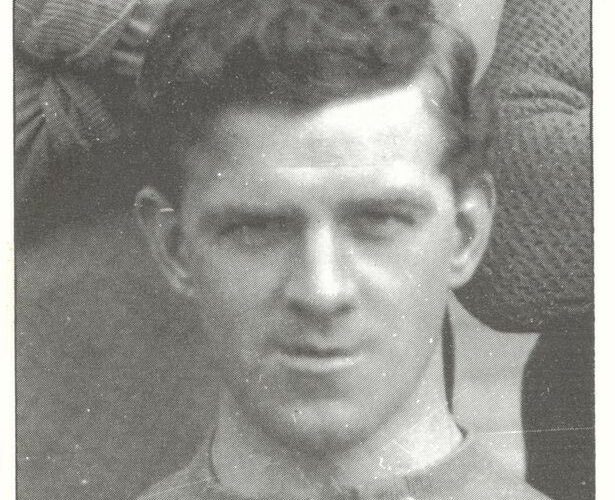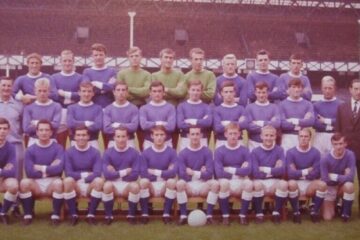[NB. A revised article on Bobby Parker by Rob Sawyer and other relevant links can be found here ]
……………………………………………………….
Bobby Parker – an Everton hero by David Prentice (2021)
Bobby Parker is an Everton hero.
A real life, bona fide hero in the truest definition of the word.
On a football pitch Robert Norris Parker was a goalscoring hero who struck at the rate of almost a goal a game. But off it he was a war-hero, a man who sacrificed a sparkling career for his country – cruelly a sacrifice precious few people were aware of.
Everton’s history is littered with what might have been stories – but none is more tragic than the experience of a superb Scottish centre-forward who deserves a place near the top of the club’s very finest goalscorers.
Bobby Parker was signed from Glasgow Rangers in November 1913 in a deal valued at £1,500. Evertonians had been shocked by the Everton board’s decision to sell 21-year-old striker Tom Browell – 37 goals in 60 appearances – to Manchester City for £1,780. Little did they know they were about to recruit a striker who would boast an even better goalscoring ratio. Parker had scored goals whenever he had been selected by Rangers’ first team, but he had a club legend in Willie Reid, still the fourth top scorer of all-time in Scottish football, barring his path to regular first team football. Everton offered defender John Fulton, rated at £700, and £800 cash in a deal valued at £1,500 for Rangers’ “reserve striker” – and undoubtedly got the better of the deal.

(The Everton Collection)

Parker made an electrifying start to his new career south of the border. He finished his first season as Everton’s top scorer with 17 goals in 25 appearances. But that was merely a warm up for his first full season as an Everton striker.
Standing just five feet eight inches tall, Parker relied on pace, accuracy and cleverness for his goals. And in 1914/15 he fired 35 goals in 35 league matches, adding two more in FA Cup ties. Those goals saw him finish as the First Division’s leading scorer, only three short of the all-time record for a single season, but even more importantly they fired the Blues to their second league title.

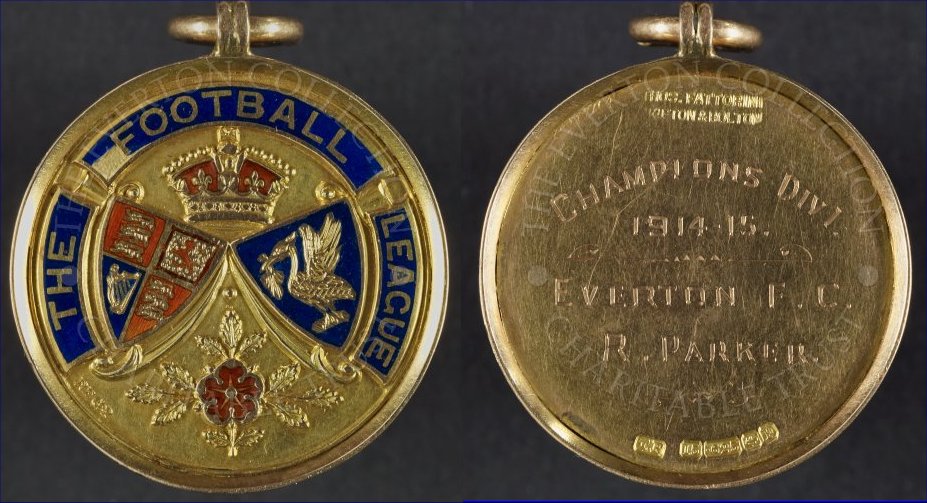
(The Everton Collection)
[NB – this section on Parker’s war record is currently undergoing further research and a newly revised account is due to go online in June / July 2025]
But with one of THE great Goodison careers about to flourish, War broke out. Parker was just twenty-four. Like so many of his team-mates he enlisted and fought bravely for his country, serving with the Royal Scots Fusiliers. He was fortunate in that he returned from the conflict which claimed so many lives.
But in 1915 Parker was invalided away from the front line with a bullet in his back. It remained there for the rest of his life, the assumption being that it was too close to his spine or organs for surgeons to risk operating.
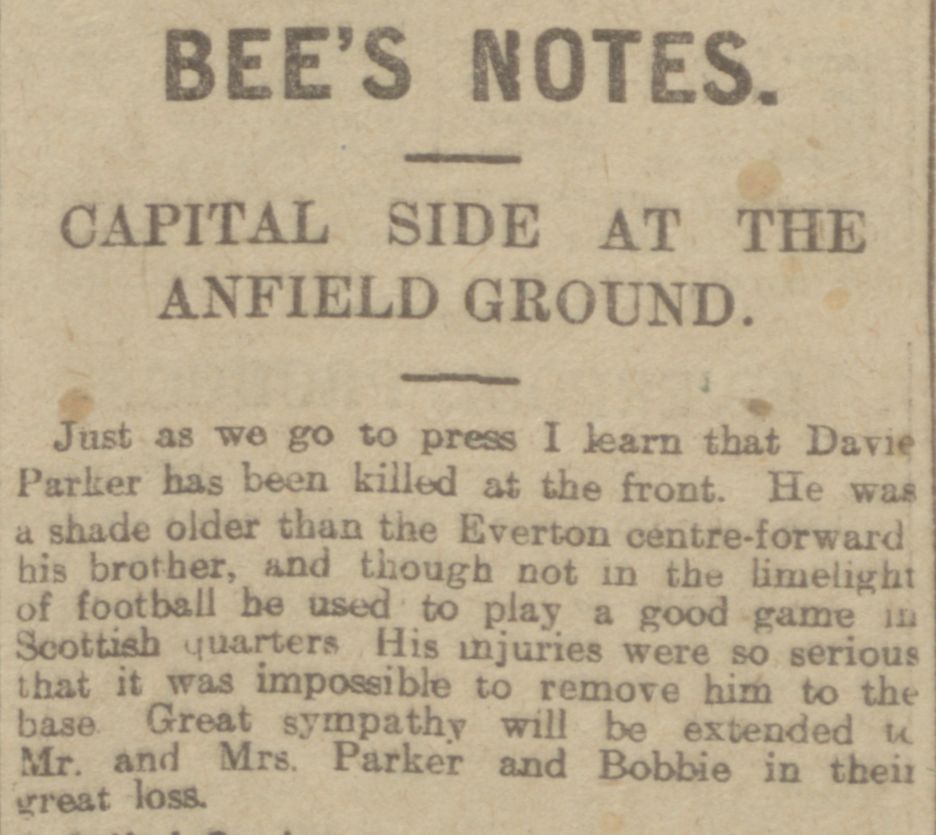
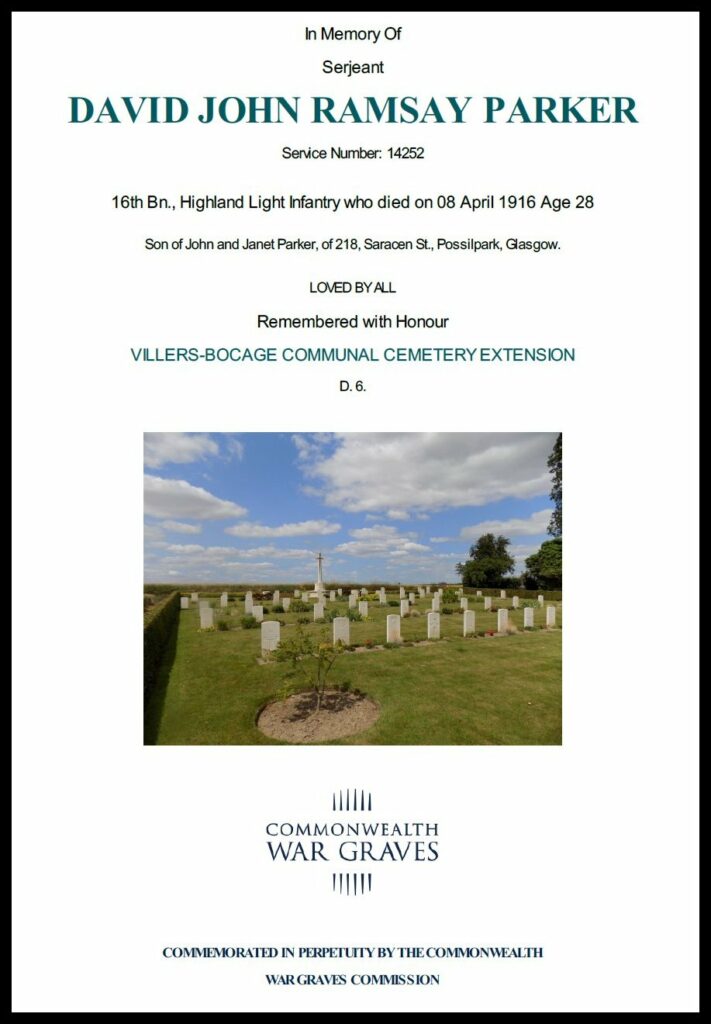

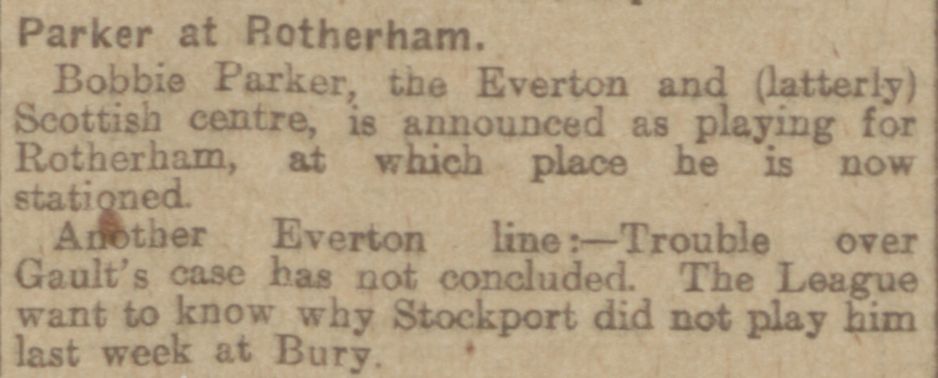
Liverpool Echo, 22 February 1917
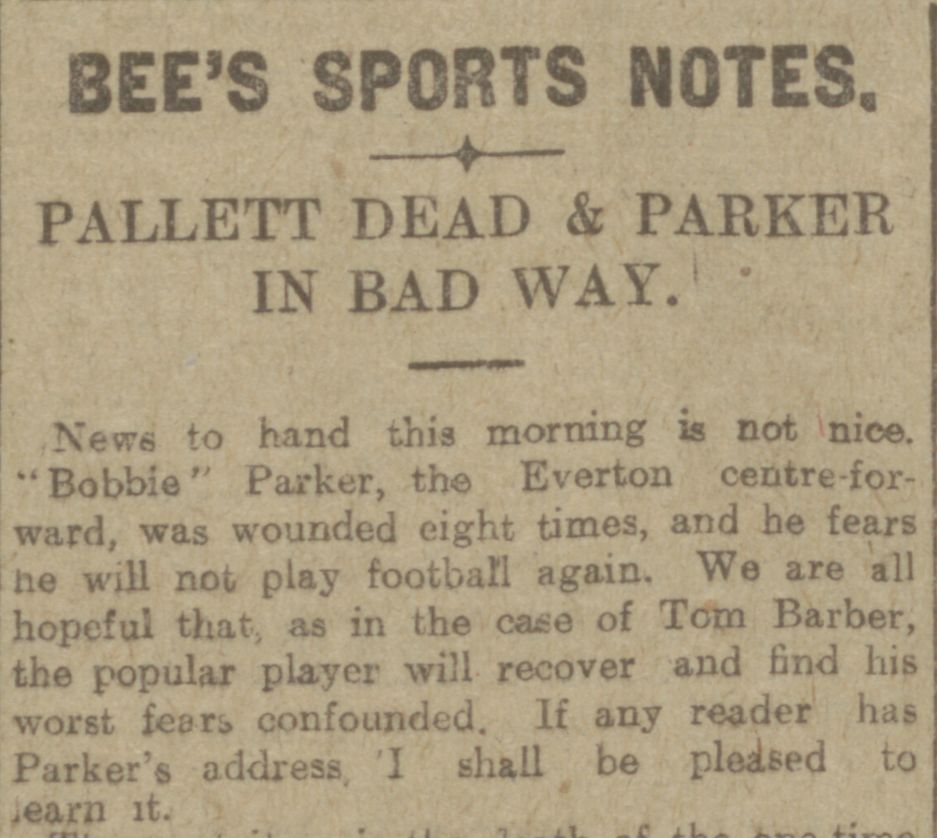


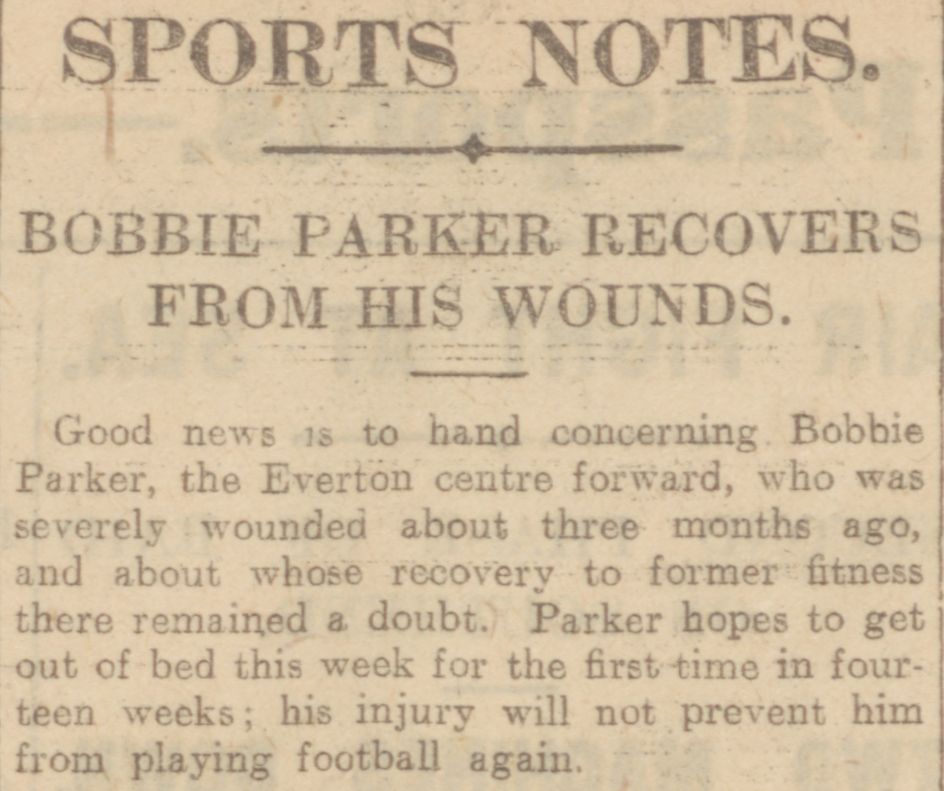
Tragically the public was told very little about Parker’s wartime experience.
Communication was understandably sketchy in war-time Britain – this was an era when another former Everton hero, goalkeeper Leigh Roose, was reported missing, presumed dead at Gallipoli – yet turned up years later fighting on the Somme – where he did lose his life.
Regular readers of the Liverpool Echo were given sketchy updates on Parker’s wartime experience.
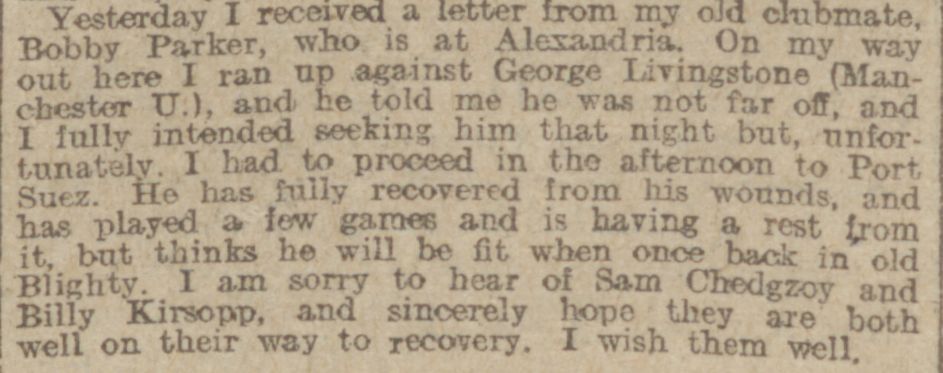
Liverpool Echo, 14 August 1918
A letter from Everton full-back Louis Weller to the Echo’s Sports Editor Ernest Edwards in 1918 revealed: “Yesterday I received a letter from old clubmate, Bobby Parker, who is at Alexandria. He has fully recovered from his wounds, has played a few and is having a rest from it but thinks he will be fit when once in old Blighty.”
A short time later, under the headline, “A’ Right the Noo” Edwards added: “Everton’s centre forward, who was wounded some months ago, sends me a field card under date May 18. He is ‘quite well.’ ”
‘Quite well’ was an understatement.

He returned to first team football in December 1919, scoring four goals in his eight appearances. Then before the 1920/21 campaign, the second full season of regular First Division football, the Echo reported: “The season’s trial spins should tell us if Bobby Parker has come right back to 1914-15 fitness again. At that time Parker was a really great centre-forward – indeed there was no finer goal getter in the land.”
He hadn’t.
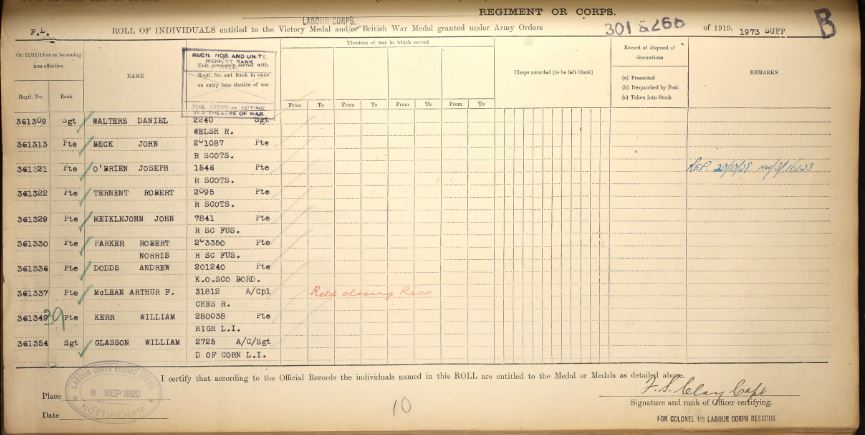
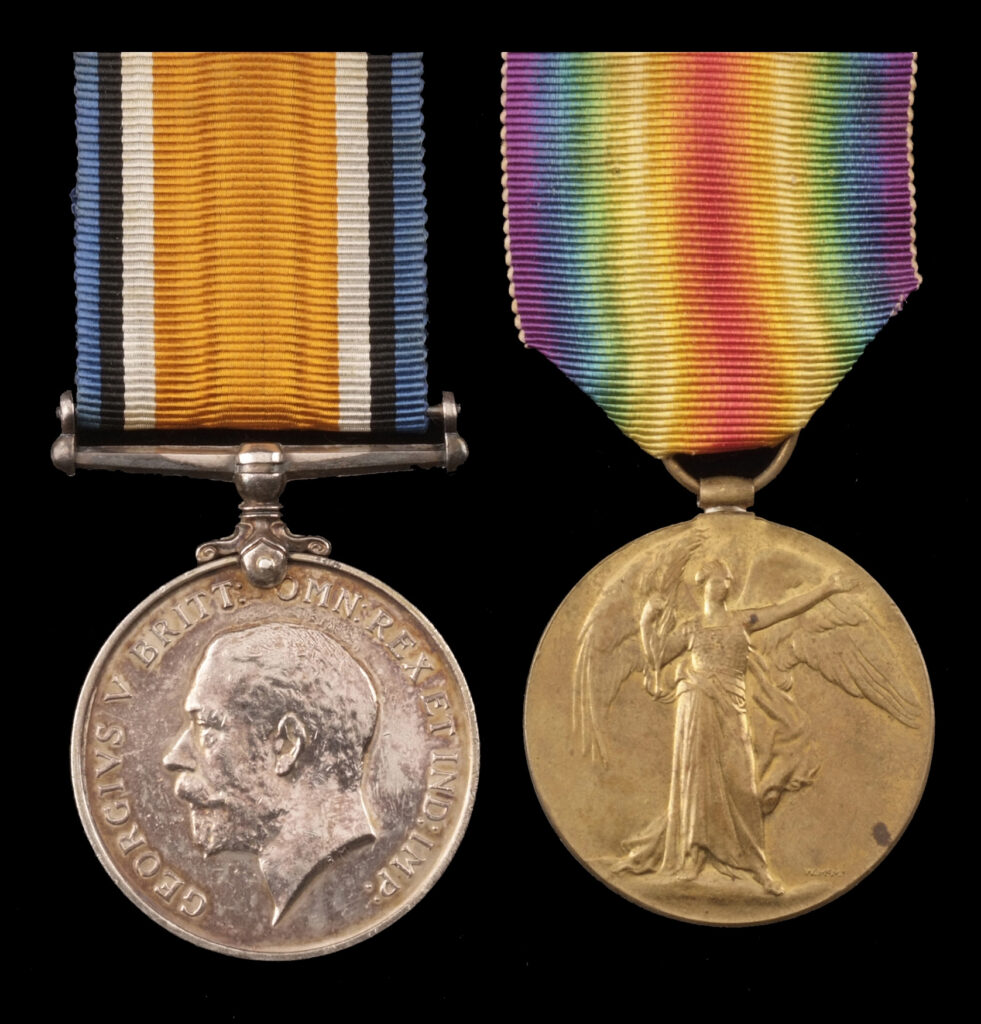
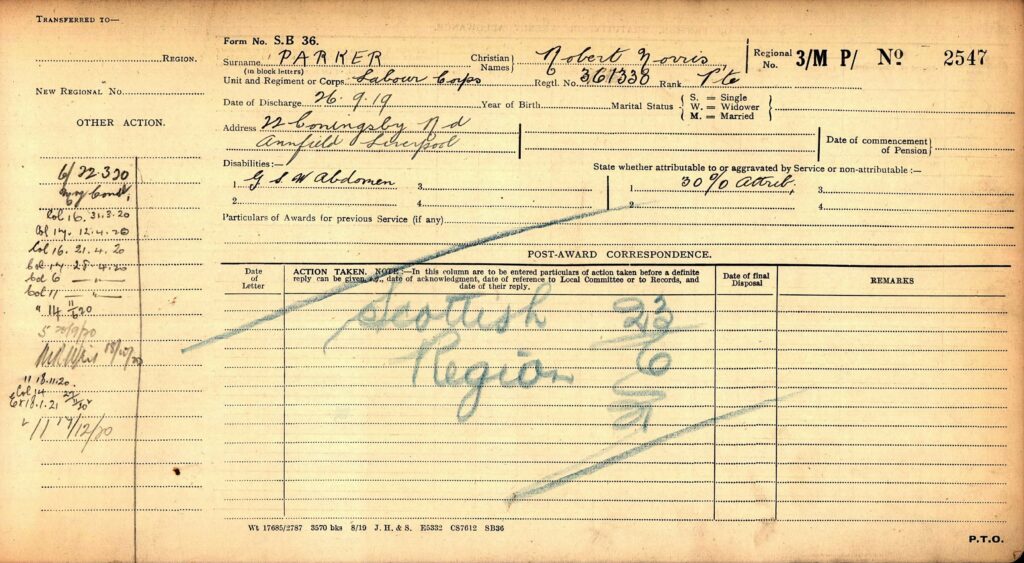

The injury sustained had taken a significant edge off Parker’s game.
Whether the press was unaware of the extent of Parker’s injury, or whether it was felt public morale would suffer after the appalling losses sustained during the War, is unclear, but the reports were hardly charitable when Parker made his long-awaited comeback, in December 1919 in an Anfield derby. Predictably he scored – in a 3-1 defeat – but the Daily Post report the next day mean-spiritedly stated: “Parker was hardly a success.”
The following season, 1920/21, he started 19 matches scoring 12 – more than respectable but not the stand-out success he had been in the final full league season before catastrophic events gripped the world.
In 1922 Bee reported that “Bobby Parker has lost that necessary yard of his pre- war finishing pace.” Evertonians were left with only memories of what might have been.
But what memories.
Parker’s signing in 1913 had initially been overshadowed by the capture of Lincoln goalkeeper Thomas Fern for £2,000. On 6 December 1913, under the headline EVERTON’S BIG CAPTURE, the Liverpool Courier reported that:
Everton’s angling at Lincoln has resulted in a big catch, for last evening Mr Cuff, the Everton secretary, wired us that Fern, the Lincoln City goalkeeper, had signed for the Blues, whom he will assist against Sheffield Wednesday at Goodison Park this afternoon. The transfer fee is not as yet given out, but there is every reason to believe that the price put on the new player will prove to be a record one for both clubs. There were anticipations of a big crowd being attracted by reason of the initial appearance of Parker, the ex-Glasgow player, in the Everton front line, but with such talked of player as Fern also making his debut, it would not be surprising if the turnstiles at Goodison Park today clicked for a much greater period than has been their wont for some time past. Though he has figured for such a long time in Second Division football, Fern is reckoned a keeper of the highest class.
The pair helped transform Everton’s fortunes. Runners-up in 1912, Everton had tumbled to 11th in 1912/13, then 15th in the campaign in which Parker and Fern signed. There had been flashes of what was to come – a hat-trick from Parker, and a clean sheet from Fern, in a 1913 Boxing Day drubbing of Manchester United, and a Parker brace in a 5-0 hiding of Sheffield United – but in 1914/15 everything clicked.
Everton had started the season slowly, with a couple of useful wins over Spurs and Newcastle being followed by seven dropped points from a possible eight. But then came the Anfield derby. Everton had not lost at the home of their fiercest rivals since 1899 – and on 3 October 1914, they extended that run with a sparkling 5-0 victory, Parker grabbing a hat trick. The result took Everton above Liverpool for the first time that season – a position they did not relinquish.
Parker’s most prolific spell came in November. A hat trick at home to Sunderland was followed by all four in a 4-1 win at Sheffield Wednesday the week after. Parker then notched the winner in a 2-1 defeat of West Bromwich Albion and grabbed another hat-trick when Manchester City were dispatched 4-1 at Goodison. For a time, Parker’s spree left Everton on target for the double. Leading the title race, they also reached the FA Cup semi-final against Chelsea.
An early injury to Harry Makepeace in the days before substitutes, meant Everton had to play the majority of the match with ten men and subsequently lost 2-0. But they exacted ample consolation when they clinched the Championship with a 2-2 draw against Chelsea. Parker scored their second goal that afternoon to ensure he ended his first full season at Goodison as the League’s leading marksman. It took his overall tally in a royal blue jersey to 55 goals in 65 games, and left Evertonians licking their lips at the prospect of further successes. The outbreak of War put an end to that.
Even the Football ECHO could barely muster any enthusiasm for Everton’s title triumph. The front page was dominated by drawings of the battle front at Ypres, with Everton’s title win pushed to the back pages. Parker joined up and while he was fortunate to return home again after the Great War, he did so with that crippling injury.
A Football ECHO report soon after the end of World War Two, 30 years later, recalled: “Bobby Parker today lies at his Dublin home, a cripple through a hole in his back – the last-but-one-war caused this. Everton FC, to their everlasting glory, have never said a word about it, but I will tell you they have pensioned Bobby Parker all these years – a good deed done, without stealth or advertisement.”
Evertonians remained largely unaware of how the War had robbed Parker of his peak years – and with international football suspended, any sort of international career too. He added 11 goals and moved on to Nottingham Forest without fanfare.

In May 1921 the Echo carried a solitary line: “We understand Bobby Parker has signed for Nottingham Forest.”
And that was that.
Evertonians would soon be thrilling to the exploits of another celebrated centre-forward.
But Parker’s switch at least gave him the opportunity to claim an unusual place in football’s history books. Having won a Scottish league medal at Rangers, and an English league title with Everton, he helped Forest to the Second Division title to claim an unprecedented hat-trick.
Parker ended his playing career back in Scotland with Fraserburgh, cut his managerial teeth there after hanging up his boots then crossed the Irish Sea to become Bohemians’ manager – where he proved an instant hit claiming a quadruple of League of Ireland championship, FAI Cup, FAI Shield and Leinster Cup in 1927/28.
He passed away in 1950 from a heart attack, aged just 59 and his final years were plagued by ill health. In 1933 the Falkirk Herald reported that Bobby was “undergoing nerve treatment in Glasgow Royal Infirmary.”
While in October 1937, the Liverpool Echo’s Louis Kelly reported: “Sorry to learn that Everton’s former popular centre forward, Bobby Parker, a very sick man these days, is wheeled about in an invalid chair and with financial circumstances none too bright. Here we have another cruel instance of a world-war victim – a badly winged centre forward alas. Parker in his hey-day was an attractive leader to watch and could hit a ball with the best of them.”
He certainly could. His goals per game ratio is bettered only by Dixie Dean and Fred Geary in the Everton record books.
His name deserves more regular discussion whenever the finest Everton goalscorers are discussed.
………………………………………………………………………..
Picture research – Mike Royden

